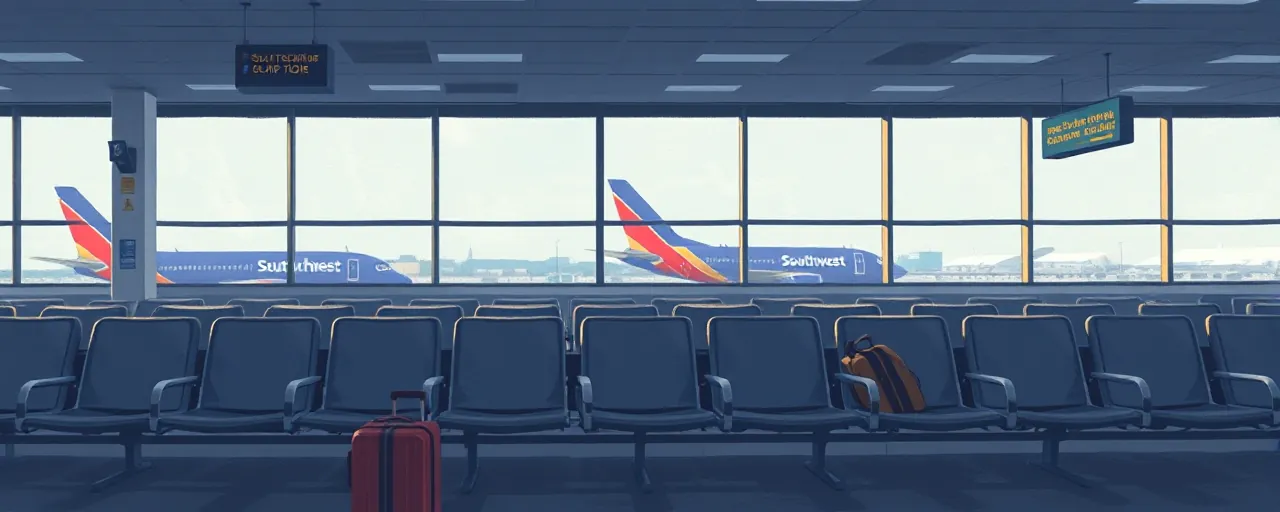A Stand Against Exclusion
The Justice Department just dropped a bombshell in Texas, taking aim at a Southwest Airlines program that handed out free flight vouchers exclusively to Hispanic college students. The ¡Lánzate!/Take Off! Travel Award Program, as it’s called, sounds like a generous deal—until you realize it slammed the door on everyone else based solely on their race. This isn’t just a minor oversight; it’s a glaring violation of federal law, and the DOJ’s move signals a no-nonsense push to dismantle policies that carve up opportunities along racial lines.
The filing in the Northern District of Texas isn’t about nitpicking. It’s about principle: every American deserves an equal shot at making contracts, whether it’s for a job, a home, or, yes, a plane ticket. The American Alliance for Equal Rights, which sued Southwest, argues the airline’s setup broke 42 U.S.C. Section 1981, a law rooted in the Civil War era to ensure no one’s excluded from economic life because of their skin color. The DOJ’s backing of this case sends a clear message: race-based gatekeeping has no place in a nation built on fairness.
The Law Doesn’t Bend for Diversity Goals
Section 1981 isn’t some dusty statute; it’s a living shield against discrimination in contracts, from employment to business deals. Courts have wielded it to strike down practices that favor one race over another, like when the American Alliance for Equal Rights took on the Fearless Fund for its race-exclusive grants. That case, much like Southwest’s, showed how initiatives cloaked in feel-good diversity rhetoric can still violate the law if they lock people out based on race. The DOJ’s filing leans hard into this, arguing that Southwest’s program didn’t just bend the rules—it broke them outright.
Some defend these programs, claiming they level the playing field for underrepresented groups. But that argument falls apart when you see how they penalize others who’ve done nothing wrong. The Supreme Court’s 2023 ruling against race-based admissions in colleges set a precedent: policies must be colorblind unless they’re narrowly tailored to fix specific past wrongs. Southwest’s blanket exclusion of non-Hispanic students doesn’t pass that test. It’s not about remedying history; it’s about picking winners and losers based on ethnicity, and that’s a dangerous precedent.
A Broader Fight for Fairness
This case ties into a larger battle. The DOJ, under Attorney General Pam Bondi, has been cracking down on corporate and nonprofit policies that prioritize race over merit. Just look at the recent lawsuit against the American Chemical Society’s scholarship program, which limited aid to certain racial groups. The courts are increasingly skeptical of initiatives that sound inclusive but end up discriminatory. The Eleventh Circuit’s ruling against the Fearless Fund’s grants for Black women entrepreneurs hammered home the point: contracts can’t be race-exclusive without a rock-solid justification.
Higher education’s feeling the heat too. After the Supreme Court gutted affirmative action in 2023, the Department of Education warned colleges to scrub race-conscious scholarships and programs or lose federal funds. Universities have scrambled to rethink diversity-focused travel initiatives, and Southwest’s program, tied to student eligibility, falls squarely in that crosshairs. The message is clear: opportunities like flight vouchers or scholarships must be open to all, not just a select few based on arbitrary markers.
Why It Matters to You
This isn’t abstract legalese—it’s about real people. Imagine a hardworking student, scraping by to afford college, only to find out they can’t even apply for free travel because of their race. That’s not fairness; it’s a slap in the face. The DOJ’s action isn’t just about Southwest; it’s about ensuring no one’s dreams get grounded by policies that judge them for who they are rather than what they’ve earned. The Civil Rights Division, led by Harmeet Dhillon, is doubling down on rooting out these practices, and it’s a fight that affects every American who values equal treatment.
The other side might argue these programs are harmless, a small boost for those who’ve faced historical barriers. But good intentions don’t erase bad outcomes. When you exclude people based on race, you’re not building bridges—you’re burning them. The law, and frankly common sense, demands better. If we want a society where everyone has a shot, we can’t keep carving out special lanes for some while telling others to wait their turn.
The Path Forward
The DOJ’s filing is a wake-up call. It’s not about tearing down opportunities but about opening them up. Southwest’s program could’ve been a beacon of hope for all students struggling to get ahead, not just a select group. By challenging this setup, the Justice Department is paving the way for policies that reward effort and ambition, not identity. This case could set a precedent, forcing companies and colleges to rethink how they structure everything from scholarships to internships.
America’s strength lies in its promise of fairness, not favoritism. The DOJ’s stand in Texas reaffirms that no one should be sidelined because of their race. It’s a bold step toward a future where opportunity isn’t rationed by ethnicity but earned through grit and determination. Let’s hope the courts—and the public—see this for what it is: a fight to keep the American dream open to everyone.
